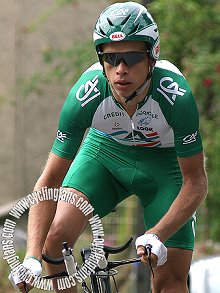Andrey Kashechkin cycle doping case threatens all sports drug testing if successful - he has Bosman's lawyer acting for him.
 Belgian lawyer Luc Misson, who co-defended Jean-Marc Bosman when the former Belgian footballer successfully sued his club at the European Court of Justice in 1995 over "restraint of trade", is acting for Kazakh cyclist Andrey Kashechkin, a former member of the Astana team which also featured compatriot Alexandre Vinokourov, tested positive for homologous blood doping in August and now risks a four-year ban. (see post July 25th http://postmanpatel.blogspot.com/2007/07/dope-has-killed-cycling-what-next.htmlKashechkin denies he used his own blood to enhance his performance, and claims that legal procedures during his control were not followed correctly by International Cycling Union (UCI) officials.
Belgian lawyer Luc Misson, who co-defended Jean-Marc Bosman when the former Belgian footballer successfully sued his club at the European Court of Justice in 1995 over "restraint of trade", is acting for Kazakh cyclist Andrey Kashechkin, a former member of the Astana team which also featured compatriot Alexandre Vinokourov, tested positive for homologous blood doping in August and now risks a four-year ban. (see post July 25th http://postmanpatel.blogspot.com/2007/07/dope-has-killed-cycling-what-next.htmlKashechkin denies he used his own blood to enhance his performance, and claims that legal procedures during his control were not followed correctly by International Cycling Union (UCI) officials.
Misson expects to win a case on the belief that "privately-run" sports bodies such as the UCI and the World Anti Doping Agency (WADA) have no legitimate right to test athletes.
The Belgian lawyer says such procedures contravene Europe's declaration of Human Rights, and that only public bodies, such as governments, have the right to carry out such procedures.
"We denounce the fact that these procedures (dope testing) and sanctions can be carried out by privately-run bodies," said Misson, who is using articles 6, 8 and 11 of the European Convention of Human Rights as a main tenet of his argument.
"To proceed to harm the fundamental rights of any individual is a right held exclusively by public bodies, and within the strict framework of the law."
Kashechkin was on holiday in Belek, Turkey with his family on August 1 when Belgian officials submitted him to a blood test late at night.
This tested positive for homologous blood doping, which means he injected his own blood to boost his performance - and if upheld means a four-year ban from the sport.
According to the Kashechkin camp the Belgian officials who collected blood samples from Kashechkin did so outside the permitted time limit of 0600 - 2200 . The officials reportedly took the samples at 2245 local time.
Misson also says that analysis of the rider's B sample, carried out 22 days later and which would validate any sanction, was not carried out within the UCI's own regulatory time limits.
Cycling's world ruling body, which is a legal entity in Switzerland where it is based, contests the competence of the court, and the fact that "a Belgian court is being asked to rule on the case of a Kazakh who lives in Monaco".
The UCI is being given full support from the respective bodies that represent the riders and the teams in cycling.
Professional cycling meanwhile is already fearing the ramifications of such a decision, and the IPCT's Belgian lawyer Jean-Louis Dupont fears the worst.
"If Kashechkin wins on the principle that only States (as opposed to private bodies) are legally allowed to carry out doping controls and hand down sanctions, then we might as well all walk away from professional sport," he said.
"The teams find it essential to be part of this procedure because it cannot accept the principle that the anti-doping fight would be the monopoly of public authorities. It would have immediate and disastrous consequences," IPCT lawyer Jean-Louis Dupont said.
Kashechkin finished third in this year's Dauphine Libere race (see pic above). He was fourth in the 13th stage of the Tour de France. The Astana team left the Tour after Alexandre Vinokourov, a race favorite, tested positive for a blood transfusion following his victory in a time trial.
A decision from the Belgian court is expected within two weeks.

No comments:
Post a Comment